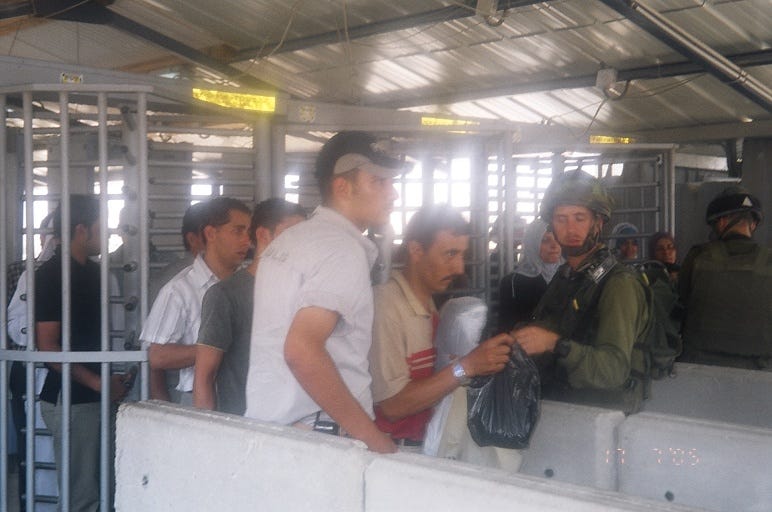Movie Review: Checkpoint (2003)
The Corruption of Humanity Under Occupation
Cinéma vérité is a style of documentary filmmaking that avoids narration, interviews, or overt explanations. Instead, the camera acts as a silent observer, allowing the audience to experience events as they happen.
Through this approach, Yoav Shamir’s Checkpoint (2003) draws viewers into the lives of Palestinians navigating the daily indignities of Israeli military checkpoints and the soldiers enforcing these restrictions. The lack of commentary ensures the moments captured feel raw and unfiltered, leaving interpretation to the audience. It’s a storytelling choice that some people may find problematic, but it’s really a show, don’t tell approach that I feel deepens the emotional impact, immersing viewers in the stark realities of life under occupation.
The Hidden Machinery of Occupation
While the occupation often makes headlines during times of war and crisis, Checkpoint zooms in on the quieter, everyday oppression that defines Palestinian life. Through inte…
Keep reading with a 7-day free trial
Subscribe to The Diaspora Dialogue to keep reading this post and get 7 days of free access to the full post archives.


